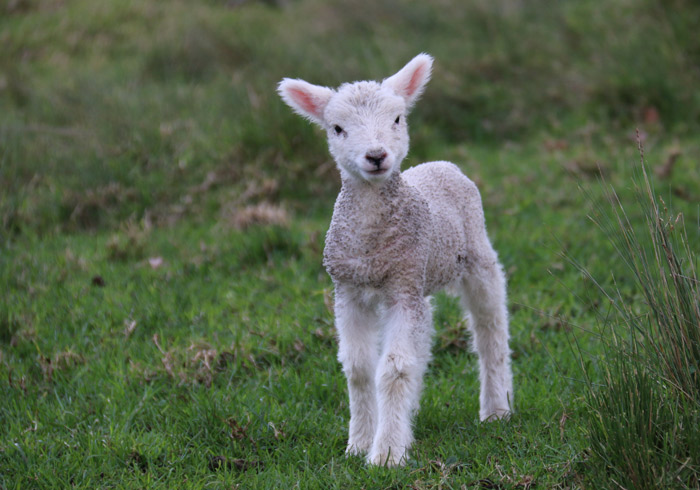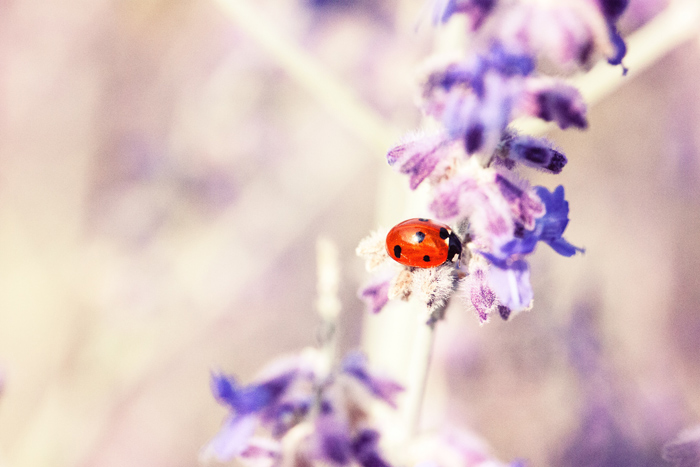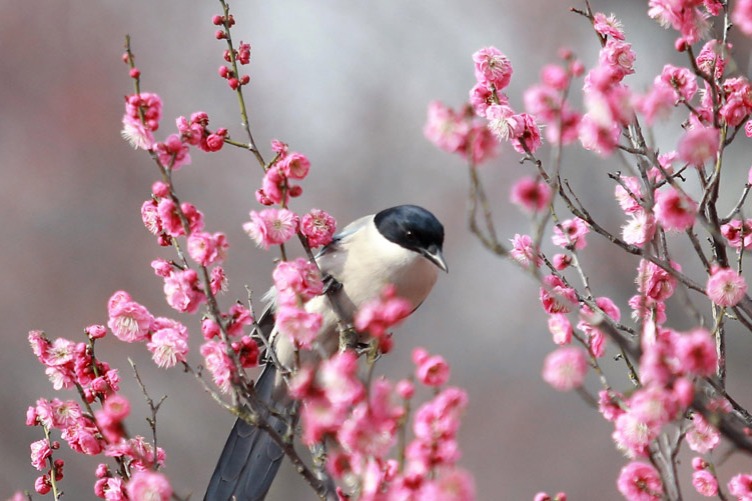只会管爱人叫honey?这里有20种甜蜜昵称 拿走不谢!(上) Can you guess what these 20 old-fashioned terms of endearment mean? (part Ⅰ)
中国日报网 2020-02-07 08:21

爱情可以是永恒的,但是爱人间的昵称却随着时间流逝不断演变和更替。你还是只会将爱人唤作honey或sweetheart吗?这里有20种甜蜜昵称,虽然古老,但是却能给即将到来的情人节增加一点新鲜感。

What did "I'm the huckleberry to your persimmon" mean?
昵称一:越橘果
Popular in the 1830s, it was the comparison of something small to something great. It became a saying of love and "huckleberry" came to mean sweetheart, friend, or partner.
这一说法在19世纪30年代很流行,原来是用于将小东西(越橘果)和大东西(柿子)相比较。后来这一说法便用来表达爱意,越橘果也成了爱人、朋友或伴侣的代称。
If you were to call someone a "mouse," what were you referring to them as?
昵称二:老鼠
Taken from Old English but popularized by Shakespeare, it means a demure or quiet darling, particularly a woman.
这一昵称来自古英语,但却是因为莎士比亚而普及的,指的是娴静的爱人,尤其是女性。
demure[dɪˈmjʊr]: adj. 端庄的;娴静的
Not a knight in training, what did "squire" mean?
昵称三:侍从
A "squire" is a man who accompanies or escorts a woman.
“侍从”指一个陪伴或护送女性的男子。

What did "lambkin" refer to?
昵称四:小羊
Used by Shakespeare in his "Henry" plays, "lambkin" can refer to both a small child and lovers. It was an endearing term used among families.
莎士比亚在他的戏剧《亨利》系列中用过这个说法。“小羊”可以指小孩,也可以指爱人。在过去曾被用为家人之间的昵称。
If you called someone "golpol," how were you describing them?
昵称五:美人
This 16th-century term to describe beauty was derived from the word gold-poll or golden headed, according to David Crystal's "Words in Time and Place."
根据戴维·克里斯特尔的《时空中的词汇》,这个词语源于gold-poll或golden headed(金发美人),在16世纪用于形容美人。
What would you mean by the word "tib"?
昵称六:小牛
You were calling them a young calf. In 14th-century England, calves were seen as both very expensive and also cute. "Tib" refers to someone desirable.
这个词是小牛的意思。在14世纪的英国,小牛被认为既昂贵又可爱。因此tib指有吸引力的人。

What did the name "ladybird" mean?
昵称七:瓢虫
Taken from "Romeo and Juliet," the name refers to a close female friend or sweetheart.
这个昵称来自《罗密欧与朱丽叶》,指的是亲密的女性朋友或爱人。
If someone called you a "duck," they were referring to you as what?
昵称八:鸭子
Darling or dear. This term was Shakespearean in origin.
称呼某人“鸭子”相当于说“亲爱的”。这个昵称源自莎士比亚作品。
What did the term "bearcat" mean?
昵称九:熊狸
In the 1920s, a "bearcat" referred to a hot-tempered woman with a lot of spirit.
在20世纪20年代,“熊狸”指的是精神饱满的急性子女人。
What did "old thing" mean?
昵称十:老东西
In the 19th century, "old thing" lost its negative connotations and was used as a term of affection for one's partner.
在19世纪,“老东西”不再含有贬义,而是被作为对伴侣的昵称。
英文来源:内幕网
翻译&编辑:丹妮

















 英语点津微信
英语点津微信 双语小程序
双语小程序